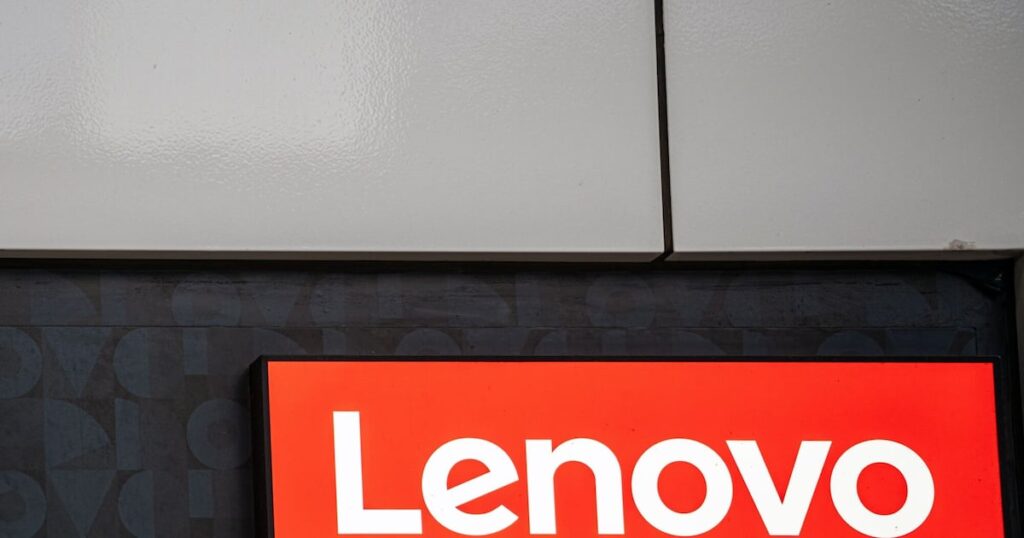Lenovo Group Ltd. reported a stronger-than-anticipated quarterly profit, indicating a promising outlook for the computing industry’s gradual recovery, supported by increased global investment in artificial intelligence. Net income saw a 38% growth to US$243 million in the quarter ending in June, surpassing the estimated $231 million. Revenue also increased by 20% to $15.4 billion.
The company’s performance is reflective of the rising demand for servers crucial in AI development, which is helping boost the computing hardware market following the post-Covid downturn. Major tech companies like Amazon.com Inc., Google, and Baidu Inc. are ramping up their spending on data centers to prepare for the anticipated growth in AI services.
According to research firm IDC, Lenovo has maintained its lead over HP Inc. and Dell Technologies Inc., having shipped 14.7 million PCs in the June quarter. However, concerns about the Chinese economy and geopolitical tensions have impacted Lenovo’s stock performance when compared to its competitors.
CEO Yang Yuanqing has placed his confidence in AI-powered devices to drive Lenovo’s global business in the future, although this market segment is still relatively unproven. In an interview with Bloomberg, Yang projected that the global PC market growth would accelerate between five and ten percent next year, driven by both AI-PC integration and the replacement cycle following the Windows 11 launch.
Although Lenovo’s first-quarter earnings exceeded expectations with a 20% revenue growth, potential trade tensions could limit the company’s dollar bond tightening due to already tight ratings headroom. Rising geopolitical risks, such as new PC tariffs or chip-export restrictions, present uncertainties for the company, given its heavy reliance on the Chinese market.
Lenovo remains the leading seller of servers in China, where the Biden administration has imposed export restrictions on advanced chipmaking technologies and processors, affecting companies like Nvidia Corp. Despite some supply constraints on Nvidia’s GPUs used for AI training, Yang expressed optimism toward improving overall conditions.
Following the release of its financial results, Lenovo’s shares initially dropped by 2.9% in Hong Kong trading before recovering some of the losses.
Copyright ©2024 Bloomberg L.P.
